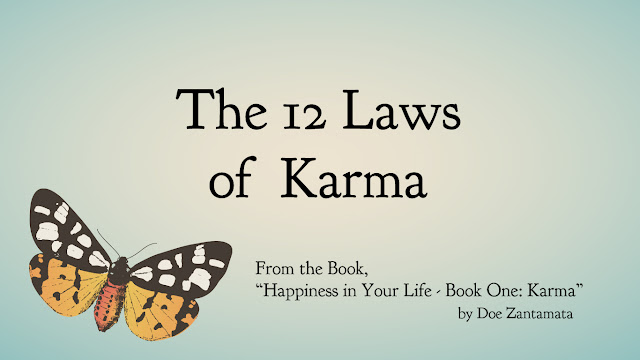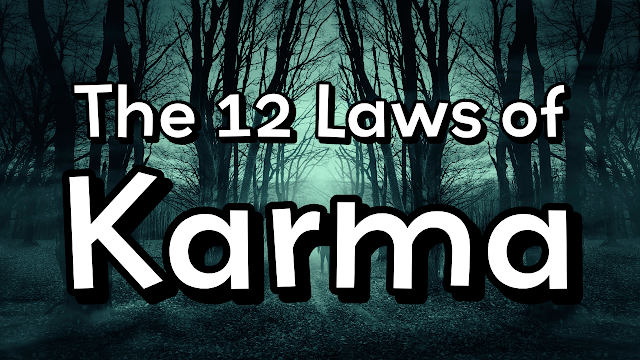Too large a load -- How to let go of pain
Many of the quotes about life have to do with letting go of past pain, because
1. We all hold on to it
2. We all need to let it go in order to be happy.
So the big three questions after that, are,
1. How?
2. How?
3. How?
Just trying to forget it all, especially through alcohol or drugs, is a very bad idea. It doesn't go away unless it's dissolved. It lives in your cellular memory, and unless you've made peace with it, those memories can be triggered at any time, by anything.
Pain, once understood, can be let go. A few of the biggest sources of pain and how to understand them are:
1. Anger
Anger is usually felt when we feel wronged by, robbed by, or cheated out of happiness by someone else. The cure for anger is compassion and forgiveness. Forgiveness doesn't mean everything's OK, it just means you've found a way to let go of the resentment toward that person.
How do you find compassion for a mean person?
Think of it from their perspective, as difficult as that may be. How were they raised? Were they, themselves completely insecure? Most people lie out of insecurity, because they're terrified of the truth. They don't accept themselves, so they can't accept anyone else. If you happen to try to love a person like this, you're in for a lot of misdirected mistreatment.
The compassion is to be found in just understanding a bit where they were coming from. Most likely, they were scared at an emotional level and trying to protect themselves. This comes across as lying, controlling, even manipulative. They feel emotionally out of control when they are vulnerable, and so out of fear, they must try to keep control over the people in their life. What a sad place to be. They can never experience happiness as long as they live this way.
They're not people to be best friends with, and if someone like this was your parent, you really had no choice. But you do have a choice now to live freely. Understand that their treatment of you was the only way they knew how to survive emotionally, even though it was abusive towards you and anyone else who happened to be in their life. Free yourself from the anger, and focus on your life today, and how free you really are.
2. Regret
Regret is usually felt when we beat ourselves up for not knowing then what we know now. We may have acted in ways, or said things that we look back on and cringe. We may have stayed in places or around people who treated us like nothing, and regret sticking around so long.
But to punish yourself for not knowing better before you knew better is just completely unfair.
You had to live through those things in order to become the wiser person who you are today. You learned about self-worth, about being kind, about the power of words. Those lessons, you keep with you, and you are a better person today because of them. Lessons in life can come directly through joy, or indirectly through pain. To become just lessons, we have to let go of the pain, and find the joy in the present and future because of that past pain. Once a lesson is learned, you never have to go through it again. You already know. You just have to release your mind from the painful memory of it.
3. Shame
Similar to regret, shame is held because of past words or actions. If you were mean, or acted like a person who you don't want to be, then don't be that person today, tomorrow, or ever again.
Make amends if you can. Apologize, no matter how long it's been. You may be holding on to shame that the other person or people have totally forgotten about. Or, they may still be holding on to the pain, too, and your apology will help to release them from it as well as you.
Once you've tried to make amends, realize that's all you can do.
Let it go, but if someone ever seems the same way as you once were, don't judge them. Know that one day, they, too will see it, and they will regret it as well. They're not bad people, and you weren't a bad person, you were just acting in a bad way, because of whatever reason.
You can't move forward in life and have happy relationships or success if you can't stand yourself. By forgiving yourself, you're also going to become a happier, more accepting person. You're going to be a better person to every person in your life today and in the future. It's a gift not only for you, but for everyone you know or will ever meet.
4. Mistrust
Trust is natural. Mistrust only comes after trust has been broken. Trusting people get hurt a lot, because it's so easy to lie to them. Mistrusting people think they're ahead of the game by not trusting anyone, but they actually hurt all the time. They push good people away, because no innocent person wants to be accused of awful things, and they can never be at peace in relationships. They're constantly questioning others' actions and motives and creating dramas in their minds about the worst case scenarios. Choose to trust. Realize that yes, sometimes you will get hurt, but that's so much better than the alternative.
5. Doubt
The opposite of doubt is faith. Faith is belieiving without proof. Doubt is not believing, whether there's proof or not. If you have faith in yourself, you go further in life. Your relationships are stronger. If you have faith in others, you inspire them to be more than they could be on their own. If you have faith in the world, in the Universe, in God, or one of the three, then even without any proof whatsoever that things will get better when they're bad, you'll just know they will. You'll be able to make it through the darkest days, and discover strength. You'll have a whole new appreciation for things and people when things do get better. You'll realize the value of those tough times.
6. Fear
One of the main concepts of religion and spirituality is to act out of love, not fear. Any actions based in fear will lead to more fear. They have their foundations built in sand, and can crumble at any moment. Any actions based in love will lead to more love, and will have their foundations set in stone. Think of someone who gets into a relationship only because they have a fear of being alone. There's no room for love there. Think instead of a person who does not act on that fear, but waits until they love themselves and meet someone who they are open and free to give love to. Fear is frantic, panicked, pain-producing, and bipolar. Love is calm, safe, steady, and secure. Love for self is #1 because we can't always read people or know what they're thinking. If a person we think loves us decides that he or she does not, and up and leaves, we need to have the love for ourselves to keep from falling apart. Realizing that it's good they left, because the last thing we want is someone aroud who doesn't want to be around. Realizng that with them gone, the space has been opened for someone who is both willing and able to return the love we have to give, and in the meantime, we're safe, loved, and protected while single.
7. Pain
Once all those things are sorted out, the pain falls away. If you ever do get reminded of an event like that, there's a detachment to it. It becomes almost as if telling a story about someone else. It's still awful, and always will be, but it just doesn't hurt anymore like it once did. A thought is just a thought until emotion is attached to it. Then it becomes very painful, joyful, or neither. When a thought arises about past pain, do not allow that painful emotion to attach to it. Consciously think of something good that came out of it, or consciously feel gratitude for the fact that today, at present, you don't have to live through it. It's done. Be grateful for the freedom. It may be tough at first to separate these feelings, but it gets easier.
"Easier said than done," just means, "not instant." And becoming whole again is never an instant process. It takes time. But each thought adjustment isn't hard at all. Just be very aware of your thoughts and emotions, and respond to them when the bad ones try to arise. Don't let your thoughts run amok. Direct them when they start to go to places that you know you don't want them to. There's no reward in staying a victim besides more pain. Directing thoughts becomes a habit with dilligent, committed practice. The reward is happiness. Not an "ignorance is bliss" happiness, but a true, bliss is bliss, wise, appreciative happiness that has made it through struggle and emerged whole. This is an amazing and worthwhile place to be. This is the meaning of inner peace.
------------------------------------------
By Doe Zantamata
For more advice on relationship patterns and how to improve them, check out Doe's book, "Karma"












